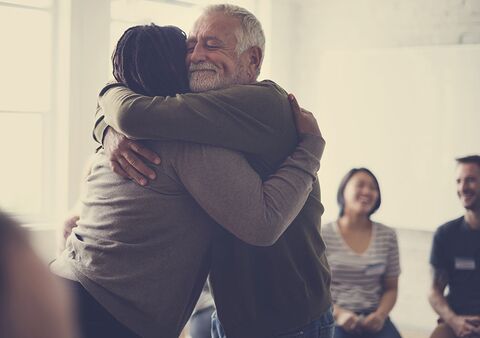A force for good: social media and mental health
For the millennials among us, being warned off technology is something we can all relate to. Whether it was for fear of TV-induced square eyes or emojis reducing our vocabulary, we’ve heard every myth in the book. More recently, reports have started to emerge connecting mental health issues in young people with social media use. Unfortunately, these reports usually reach us through the mainstream media which focuses on the negative findings. Is this simply another case of technology being the scapegoat for the issues we have been facing for years?
The evolution of mental health awareness
Personally, I find the discussions around social media and mental health troubling and misguided. By simply focussing on the negative impacts of social media, reports have not provided enough context for their claims.
Firstly, mental health awareness is a fairly recent trend. To put this into context, less than 70 years ago, women were still being diagnosed with - and admitted to asylums for - ‘hysteria’. (Women could be diagnosed with ‘hysterical neurosis’ for a whole host of things: postpartum depression, anxiety and disobedience, to name a few).
Since the 1950s, the stigma attached to mental illness has been gradually eroded and this means that more accurate statistics can be collected. Indeed, as more and more cases of mental illness are reported year to year, we must remember that this does not mean there were fewer people affected by mental illness in the past; this simply means that safer spaces are available for people to talk about it. And do you know where these discussions are happening? On social media.
It’s not all bad. Really!
Believe it or not, social media is a tool for good if we use it right. With spaces being created for groups that were previously marginalised, social media can be an incredible, supportive place to escape unhealthy spaces and find a new family, full of like-minded people. On Facebook alone, there are thousands of support groups for people with mental illnesses and addiction, and LGBTQIA+ individuals. Supportive images, videos and messages flood these pages and provide a safe space for sensitive discussions that might be impossible or embarrassing offline.
In fact, Facebook is helping to tackle one of the most worrying trends on social media - suicidal communication going unnoticed. The platform has introduced AI technology that detects patterns of suicidal language and reaches out to users with safeguarding resources such as helpline information, tips and the ‘Talk to a Friend’ feature. This technology is saving lives.
It is clear that to create a youth-friendly social media landscape, we need to know where to start. With social media, it’s all about how you use it and the support structures you have in place, online as well as offline. Rather than scaring people off social media, educational systems need to be put in place to encourage the youth to create their own safe spaces online and help them participate in healthy interactions.
Here’s a thought: let’s support young people on social media and create a positive dialogue to help them improve on society's biggest issues, on social media as well as in the world at large.
We're a creative agency in London and Singapore. We help our clients break through the noise. We'd love to hear from you so do drop us a line
